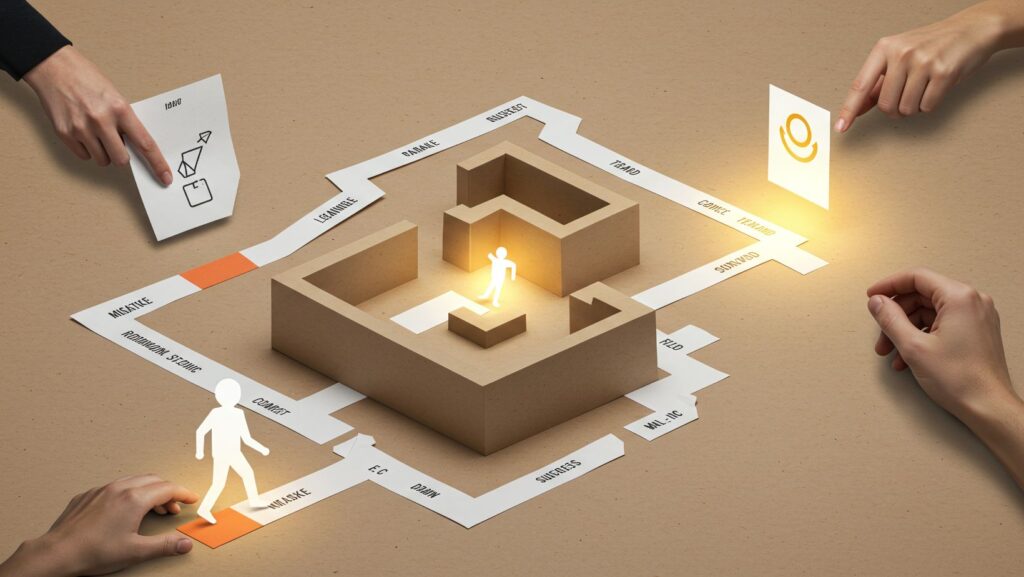Life often feels like a series of challenges stacked on top of each other. Some days, it’s just about getting through your to-do list. Other times, it’s about confronting deeper struggles—career setbacks, relationship issues, or even a sense of being stuck. If you’ve ever felt this way, you’re not alone. In fact, many of the lessons we need to grow can be found by looking at life as a story—your story.
One framework that helps make sense of these challenges is the Hero’s Journey, a concept Carl Jung and later Joseph Campbell explored in depth. At its core, it’s the idea that life is full of stages that mirror the arcs we see in myths, legends, and even modern movies. Understanding this journey can give you a clearer map of how to face your challenges and grow from them.
For those looking for guidance on exploring these ideas in depth, Jungian analysis provides tools to reflect on your experiences, uncover recurring patterns, and discover personal insights.
Understanding the Hero’s Journey
The Hero’s Journey isn’t about going on a literal adventure. It’s about a pattern you might recognize in your own life. You start in a familiar place, face a challenge, go through transformation, and return changed. Jungian concepts tie into this journey by highlighting the role of the unconscious mind, archetypes, and personal growth.
The Stages You Might Recognize
Here’s a simplified view of how the Hero’s Journey plays out in everyday life:
- The Call to Adventure – Something disrupts your routine. It might be a job loss, a move, or a health scare. The call can feel scary or uncomfortable, but it signals that change is on the horizon.
- Crossing the Threshold – You take the first step into the unknown. This is the part where you leave your comfort zone. It’s often messy, filled with doubt and uncertainty.
- Trials and Challenges – Here’s where you really test yourself. These challenges can be internal (fear, self-doubt) or external (conflict with others, unexpected obstacles). The key is to face them honestly, even when it’s hard.
- Transformation – After confronting these challenges, you start to see yourself differently. Jung called this individuation—the process of becoming your true self. You gain insight into your strengths, weaknesses, and patterns.
- Return and Integration – Finally, you bring what you’ve learned back to your everyday life. You may not have solved everything, but you carry forward wisdom, resilience, and a deeper understanding of yourself.
Why This Approach Works
One reason the Hero’s Journey framework is useful is that it normalizes struggle. Research shows that reframing challenges as part of a personal narrative can improve resilience and mental health . When you see yourself as the protagonist navigating trials rather than as a victim of circumstance, you naturally start looking for solutions instead of getting stuck in frustration.
Jungian concepts also help by connecting these experiences to the unconscious. Recurring dreams, patterns in relationships, and inner conflicts often reveal what’s holding you back. By paying attention to these, you gain clues about your next steps.
Practical Ways to Apply the Hero’s Journey
You don’t need to spend years in therapy to start applying these ideas. Here are a few simple steps you can try:
- Reflect on your story – Write down a challenge you’re facing. How does it feel like a call to adventure? What fears or doubts are holding you back?
- Identify recurring patterns – Notice if similar issues keep appearing in your life. Jungian analysis suggests these patterns point to lessons you haven’t fully integrated.
- Set small, actionable goals – Transformation doesn’t happen overnight. Take small steps toward change, like trying a new strategy at work or opening up in a personal relationship.
- Seek support when needed – Talking with a professional can provide guidance and perspective. Even brief sessions can clarify what the next step in your journey might be.

Remember, not every stage of the journey is comfortable. You’ll likely face setbacks, and that’s okay. Struggle isn’t a failure—it’s part of the process.
Limitations and Realities
It’s important to be realistic. Viewing life as a Hero’s Journey doesn’t mean every challenge has a clear lesson or happy ending. Some struggles are ongoing, and some issues may require long-term support or medical attention. The framework is a tool for reflection and growth, not a cure-all. Use it to understand your patterns, not to judge yourself when life doesn’t go perfectly.
Wrapping Up
Thinking of your life as a Hero’s Journey can change how you approach challenges. By understanding the stages of the journey and connecting them to Jungian concepts, you give yourself a guide for growth. You’ll learn to see challenges as opportunities for insight, to embrace transformation, and to return to your daily life with a deeper sense of purpose.
The next time life throws you a curveball, ask yourself: what stage of my journey am I in, and what might this experience teach me? It might not give you all the answers, but it can make the journey feel a little less overwhelming—and a lot more meaningful.
